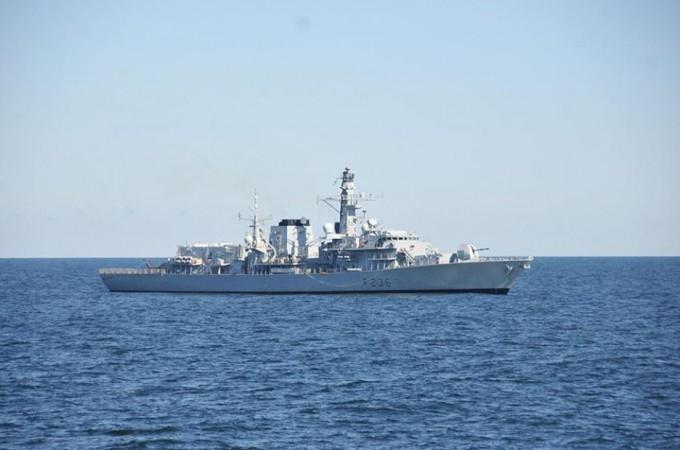
Around five Iranian Revolutionary Guards boats reportedly approached a British oil tanker in the strategic Gulf waters on Wednesday. The boats retrieved after a warning was issued by a British warship, according to US officials.
"The Royal Navy HMS Montrose, which was also there, pointed its guns at the boats and warned them over radio, at which point they dispersed," an official said, reported Reuters. Another official claimed that the action accounts to "harassment and an attempt to interfere with the passage."
Iran's Revolutionary Guards rejected the claims on Thursday, reported Fars news agency.
The incident took place a week after the Royal Navy captured an Iranian supertanker 'Grace 1' in Gibraltar over suspicions of the tanker carrying crude oil to Syria violating EU norms.
Tensions between the two countries increased after Iran responded to the move as 'illegal', and warned to seize a British tanker as retaliation. "If Britain does not release the Iranian oil tanker, the relevant authorities will be duty-bound to take reciprocal action and seize a British oil tanker," Iran's Expediency Council secretary Mohsen Rezai said last week.
The US-Iran relations have deteriorated extensively in the past few months after US President Donald Trump backed off from issuing military airstrike on Iran after the Iranian Revolutionary Guards shot down a US drone.
Through the imposition of economic trade and defence sanctions on Iran, the White House has exerted "maximum pressure" policy to protect regional security in the Gulf.
Iran has retaliated by increasing its uranium enrichment stockpile, breaching the 2015 Joint Comprehensive Plan of Action (JCPOA), also known as the Iran nuclear deal. Iranian Foreign Minister Javad Zarif called the move as a 'remedial step' by Iran against 'US economic terrorism.'
"The increased aggression exhibited by both the countries has led the US military to decide upon enlisting troops through a military coalition with allies to safeguard strategic waters off Iran and Yemen," the Chairman of the Joint Chiefs of Staff, Marine General Joseph Dunford, said on Tuesday.
The rising tensions between the two countries have indicated the risk of armed conflict between the two countries for the first time since 1988.
The Strait of Hormuz is one of the most crucial sea routes as more than a fifth of the global oil supply passes through the strategic channel. It links key crude oil-producing Gulf countries like Iran, Saudi Arabia and the United Arab Emirates with the rest of the world.
















